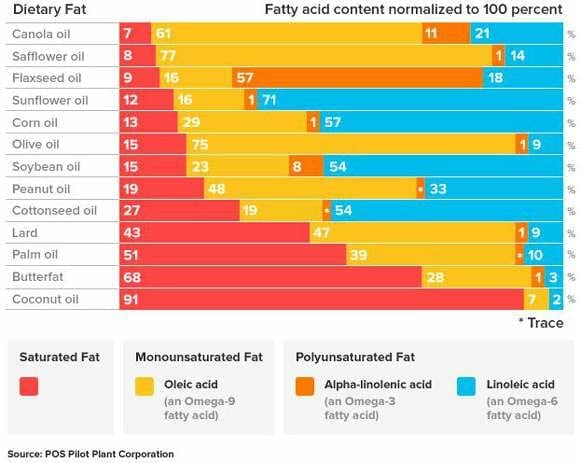Herbal Remedies
What Are The Benefits of Omega 369 Oil
Omega 3 fatty acids have been quite the topic of discussion in the health industry as of late. The benefits are well known and have been proven in many different studies. This blog will discuss the many health benefits of Omega 360 oil which include reducing heart disease, diabetes, cancer risk, ADHD in children, inflammation and many more. Nutritionists recommend that we include fish oil in our diet because of the many nutrients that are beneficial to our health. Many of these benefits are derived from the omega 3 fatty acid DHA.
What Are The Benefits of Omega 369 Oil
The Omega3 fatty acids found in fish oil are important for brain development, heart health and general good health. Omega3s have been shown to reduce the risk of developing heart disease, and have been linked to decreased risk of dementia as well as being beneficial for many other health related ailments making them an essential supplement for promoting overall health.
Omega 3 6 9 fatty acids are omega-3 and omega-6 polyunsaturated long chain fatty acids that have been linked to reducing the risk of heart disease, and also to helping people maintain a healthy weight.
Omega 3 fatty acids are mainly obtained from eating walnuts, oily fish and their oils such as flaxseed oil, or can be made by the body from alpha linolenic acid (omega 3).
In comparison to the alpha linolenic acid, which is broken down into two forms, directly gamma-linolenic acid or “GLA” and also ALA omega 3 fatty acids, which is a precursor and must be converted into GLA to become long chain fatty acids.
Types of omega 3 metabolic processing pathways
omega-3 fatty acid is constructed by several metabolic processing pathways to make different long chain metabolites that play a role in cell membrane structural and function.
Omega-3 fatty acids are available through both dietary consumption and synthesis from alpha linolenic acid, which is a component of plant and certain animals. To clarify the role they play in metabolic activity in the body, many different types of fatty acids have been categorized as parent and precursor of each of the metabolic deriving metabolites. These types are totally dependent on both omega 3 fatty acids and alpha linolenic acid.
There are many benefits of omega 3s. This article will discuss what the benefits are and how they help your body.
The benefits of EPA and DHA are largely due the use of omega-3 fatty acids in the brain, eye and cellular membranes. These fatty acids are used to prevent metabolism disorders including reactive hypoglycemia, chemical erosion and brain trauma.
EPA is primarily used to prevent inflammation of the heart and blood vessels as well as prevention of high cholesterol. DHA is to be used orally in prevention and treatment of stroke damage, arrhythmia, arterial sclerosis and abnormal heart rhythms.
Omega 3 fatty acid, also known as n3 fatty acids, are essential for more than simply being adequately supplied in the diet. The human body can’t produce them and therefore they’re taken from the diet. They are considered to be essential fatty acids because the human body, on its own cannot produce them. So through supplementation, along with the Omega 3 supplements we can guarantee a healthy body with a lot of advantages in terms of health. You may wonder why this is important, and it’s because inflammation is at the root of most diseases. This condition causes great damage to our body tissues. It’s a condition that always occurs internally and externally, plus it leads to inflammation in the body, which causes chronic illnesses such as cancer, arthritis, cardiovascular disease and so many others. These benefits are great especially for people that have underlying problems such as heart disease, because they can lower the level of stress in your body and maintain a healthy metabolism. Just remember to supplement with this natural product because it is not an over the counter medication, it’s much more than that.
The benefits of omega 3s include:
1. Omega-3s Can Fight Depression and Anxiety

Omega-3s can fight depression and anxiety by improving mood, boosting endorphins, and enhancing brain function. Omega fatty acids improve mood because they can extinguish stress hormones that make you feel anxious. Due to the effects of cross talk between cells in your brain, the omega-3s can improve mood, and therefore stop you from getting depressed. Omega-3s also fight stress because the immune system is made up of endorphins. Endorphins are similar to the brain’s own natural painkillers, and when introduced into the body through diet or supplements can stop you from feeling stressed. Endorphins are released naturally by exercise in your body, but also have painkilling functions like they do in the brain. Omega-3s are good at fighting inflammation and that can help lead to an anxiety-free life.
Depression is known to be caused by inflammation. Omega 3s have been found to reduce depression and at the same time, help with anxiety, which is often related to depression. Omega 3s help with anxiety in children and adults, but more specifically, they can be used to treat postpartum depression.2. Omega-3s Can Help with Epilepsy and Autism.
Omega-3s are associated with less depression and anxiety symptoms when taken regularly. Omega-3 fatty acids can reduce the risk of depression in adults according to a study in the medical journal, The Lancet. A Princeton University study also found a correlation between higher omega 3s intake and lower symptoms of depression. Additionally, reducing inflammation by taking Omega-3s has been shown to decrease anxiety and help with mood balance.
In a study, people who took omega-3 supplements were significantly less likely to have depressive symptoms than those in the control group. They also had fewer anxiety symptoms. What’s more, people who started using omega-3 supplements were less likely to develop schizophrenia for the next six years than those who didn’t take them. Why? Could it be that omega-3s may help fight off other mental-health disorders, such as schizophrenia?
2. Omega-3s Can Improve Eye Health
Omega 3 is a type of polyunsaturated fatty acid found in seafood, especially cold water fish. It is one of the most popular supplements in America today, and can be found in many different types of foods such as eggs, milk, yogurt, and salmon. Omega 3 is a basic building block of many of our cells and can be found in the eyes, where it promotes healthy vision. The eyes are damaged by inflammation, age-related macular degeneration and cataracts, and if they are not treated early, these conditions can lead to long-term vision loss. The primary problem is the inflammation in the eye which leads to many different symptoms from watery eyes to dry mouth, or swollen eyelids.
At the University of California, researchers were investigating Macular Degeneration, and found that there was a definite link between inflammation in the eyes and the onset of macular degeneration. “If inflammation is occurring in the eye, it can cause changes to vision that lead to vision loss,” said Duygu Acar Oner, associate director of the Center for Eye Research. “Inflammation is a central mechanism in the development macular degeneration, and reducing inflammation can prevent or cure macular degeneration.”
The UCLA teams conducted a number of experiments to show that omega-3 supplementation can reduce eye inflammation by improving the function of the retina (the light sensitive tissue in the back of the eye).They found that omega-3 supplements decreased macular degeneration in mice, while control animals (in which levels of omega-3 were lower) did not show any improvement. The researchers passed a laser through the eyes of mice to test for signs of damage. They found that treating the animals with omega-3 supplements significantly reduced damage to the retina, suggesting that omega-3 can aid in preventing macular degeneration.
3. Omega-3s Can Promote Brain Health During Pregnancy and Early Life

Omega-3s are crucial for brain growth and development in infants. When pregnant women consume omega-3s, they provide their babies with the nutrients they need for brain development. This is great news because the developing brain needs a lot of energy, and one way of providing it is by providing it with omega-3s.
A study of more than 300 infants found that those fed a formula with DHA had better eyesight at 6 months old. Infants without the omega-3 had poorer eyesight than those with it.
Omega-3s Can Promote Brain Health During Pregnancy and Early Life as they can help improve the health of your developing baby during pregnancy. Pregnant women should therefore consume omega-3s, which can help promote brain health during pregnancy and early life. Infants fed a formula with DHA have better eyesight than those without it. And the DHA can protect against eye damage in older children with a family history of glaucoma.
Since omega-3s are essential for brain development, many pregnant women choose supplements that contain them. This is a great way of ensuring that your baby’s brain is healthy.
Pregnant women who choose to consume omega-3s are doing their children so much good by supplying them with the nutrients they need. To get all that you can from your omega-3s, you should take a supplement that contains them. Even if you don’t consume any omega-3s through the foods that your diet provides, it is still important to ensure that you are getting enough. Supplements are a great way to take your omega-3s, and they come in at fairly low prices online.
Omega-3s can also help improve intelligence, communication, social skills and more. This is due to the fact that the brain is a fatty tissue that involves a large number of fatty acids. This is why Omega-3s are sometimes referred to as “brain food”.
In 1999, a University of Louisville study showed that babies who received docosahexaenoic acid (DHA, omega-3 fatty acid) before birth had better working memory than those who received docosahexaenoic acid after birth. Furthermore, infants given DHA in 2000–2001 had better spatial ability and arithmetic reasoning than infants who received docosahexaenoic acid in 2001–2002, the second year of the study (Pine et al. 2005).
4. Omega-3s Can Improve Risk Factors for Heart Disease
Omega3s are found in cold-water fish such as salmon, mackerel, sardines and trout that contain omega 3 fatty acids. Omega 3 fatty acids are the polyunsaturated fats that can help reduce your risk of heart disease, stroke and other related diseases. The omega-3s also help prevent blood clots that can lead to heart disease. People who eat fish, flaxseed oil and other foods rich in omega-3s are less likely to have a heart attack or stroke.
Diseases related to heart attacks and strokes are the world’s leading cause of death. Omega-3s can help reduce the risk factors for these diseases. The most popular omega-3s are EPA and DHA which are found in fish oil supplements.
Research conducted at the University of California in Santa Barbara examined data on thousands of adults from 18 countries to determine the relationship between fish consumption and lower risk for heart disease and death. The study found that omega3 fish consumption was inversely related to total mortality and mortality from heart disease, including definite and probable forms. Studies have shown that not only can fish help prevent heart problems, but it can also lower the risk of cancers by decreasing inflammation and reducing the risk of infection. If this study holds up over time, the implications could be significant for millions of people worldwide who don’t regularly eat fish, or choose not to eat it at all.
Fish-eating communities in the Arctic had very low rates of heart disease, while their diet consisted almost entirely of omega-3 rich fish. The huge benefit of a balanced intake of fat in the diet is that it has been a source of energy for thousands of years. Humans have evolved with a high reliance on fatty acids, especially omega-3 and omega-6, as an energy source to fuel the brain, muscles and cell membranes.
5. Omega-3s Can Reduce Symptoms of ADHD in Children

ADHD is characterized by inattention, hyperactivity and impulsivity that can lead to behavioral problems and difficulties with learning. Omegas 3 have been shown to reduce these symptoms in children.. These fatty acids are essential for brain development and function, but our diet often lacks these nutrients because it is high in trans-fatty acids.
Omega-3s are also found in animal products, like fish and eggs, which can be difficult for children to consume on a daily basis. A study conducted at the University of Maryland School of Medicine found that children who supplemented their diets with omega-3 fatty acids showed a significant decrease in ADHD symptoms. The subjects were given 1.2 grams of omega-3s in the form of soybean oil, every day for 3 months. The children had an average reduction in symptoms, including a decrease in ADHD behaviors and improved attention. This is great news as omega 3 is a cheap and affordable supplement that is readily available at most health stores.
Omega 3 has also been found to help with epilepsy and autism, which is a condition that can cause seizures in young children. Omega 3s can be used to reduce the risk of seizures in children with autism or epilepsy. It works by lowering levels of a brain chemical called glutamate. It was found that children with autism had higher levels of a glutamate receptor called NMDA. Omega 3s are also used to treat autism in children.
6. Omega-3s Can Reduce Symptoms of Metabolic Syndrome
Omega-3s can reduce the symptoms of metabolic syndrome. Omega-3 fatty acids are one of the most important nutrients for human health and
Omega-3 fatty acids are essential nutrients that promote heart health. They also play a role in the reduction of symptoms associated with metabolic syndrome, or the combination of factors that increase an individual’s risk of cardiovascular disease and diabetes.
Metabolic syndrome is a condition in which multiple health problems can develop at once, such as high blood pressure, abnormal cholesterol levels, and abdominal obesity. It often first appears in adulthood, and is most prevalent in populations with a high BMI.
The chronic inflammation that occurs when an individual has metabolic syndrome can lead to the development of atherosclerosis and heart disease. Current treatments for metabolic syndrome may include diets, medications, and exercise; however due to the multiple diseases that can occur due to metabolic syndrome, lifestyle changes such as diet can have a major impact on metabolic syndrome.
There is confusion and overlapping information on the importance of triglycerides in people affected with cardiovascular disease. Although elevated levels of triglycerides have been linked to coronary heart disease, and atherosclerosis, triglycerides are also important for many other aspects of health. Some research suggests that there may be a direct relationship between the presence of elevated levels of triglycerides in plasma and the presence of metabolic syndrome.
Recent studies of fatty acids and their role in the prevention of cardiovascular disease indicate that there is a selective role for two specific omega-3 fatty acids, docosahexaenoic acid and eicosapentaenoic acid, which among other things stabilizes the triglyceride levels in plasma. Several recent studies also show that measures of heart disease risk and death in patients can be directly correlated with fatty acid levels and/or ratios of the two omega-3 fatty acids.
7. Omega-3s Can Fight Inflammation

Inflammation is a protective mechanism that helps us to keep our immune system in check. The initial phase of inflammation (monocyte activation) responds to tissue injury or infection by activating macrophages and other cells of the immune system to produce interleukins such as IL-1, IL-6, TNF-a and IL-12.”
Omega-3 fatty acids have been shown to help fight inflammation. These fats can also be found in foods like walnuts and flaxseeds. Omega-3 fatty acids are also found in supplements made from things like algae and krill oil, which can help improve your overall health.
Long-term inflammation can contribute to almost every chronic Western illness, including heart disease and cancer. Notably, omega-3 fatty acids can reduce the production of molecules and substances linked to inflammation, such as inflammatory eicosanoids and cytokines. Studies have consistently observed a connection between higher omega-3 intake and reduced inflammation.
Omega-3s are important for the prevention and treatment of chronic inflammation. They have been shown to decrease levels of pro-inflammatory cytokines, which in turn reduces pain, improves sleep quality and increases mood. Omega-3s are important for the prevention of chronic inflammation as well as for the treatment of certain chronic conditions.
The DHA:EPA ratio in the nervous system has been shown to be highest during late pregnancy and early infancy, and this ratio directly relates to brain development. Experiments on animals have found that higher DHA intakes may reduce anxiety, depression, aggression and ADHD symptoms. Other studies add to this line of research by linking DHA during development with mental fortitude and improving working memory.
8. Omega-3s Can Fight Autoimmune Diseases
Omega-3s are polyunsaturated fatty acids that help to reduce inflammation and improve brain function. These essential nutrients can also fight autoimmune diseases, such as multiple sclerosis. Omega-3s are found in fish, nuts, seeds, and dairy. (Most dairy foods are a good sources of omega-3s, but they contain too much saturated fat)
Omega-3 fatty acids, which are found in fish oil, can fight autoimmune diseases. There has been a rise of people with autoimmune disorders such as rheumatoid arthritis, type 1 diabetes, Crohn’s disease and multiple sclerosis. It has been found that women who take omega-3 supplements also have a lower risk of rheumatoid arthritis.
Omega-3s, which are found in cold water fish such as salmon and sardines, have been shown to help fight against autoimmune diseases such as type 1 diabetes, rheumatoid arthritis, ulcerative colitis and Crohn’s disease. Omega-3s also help fight against type 2 diabetes. The anti-inflammatory effect of omega 3s helps with heart disease and also Alzheimer’s disease.
When you consider all the beneficial effects associated with omega -3 fatty acids, it is little wonder that taking omega -3 fatty acids on a regular basis is one of the most important forms of supplementation you can take.
9. Omega-3s Can Improve Mental Disorders

High cholesterol can lead to the development of psychological disorders, especially schizophrenia. Omega-3 may lessen the risk of these conditions by reducing the levels of cholesterol in blood.
Omega-3 fatty acids are important for the development of the brain and neurotransmitters. There is evidence that omega-3 fatty acids can improve mental disorders like depression, schizophrenia, bipolar disorder, and ADHD.
Studies suggest that omega-3 supplements can reduce the frequency of mood swings and relapses in people with both schizophrenia and bipolar disorder.
When the body’s omega-3 levels are low, it is more likely to develop mental disorders. Researchers found that omega-9 and omega-3 functions as anti-depressants by increasing the levels of feel–good chemicals in the brain. According to a research published on Neuron, the levels of omega-9 significantly affect the amounts of NMDAR found in the brain.
10. Omega-3s Can Fight Age-Related Mental Decline and Alzheimer’s Disease
Omega-3 fatty acids are a type of polyunsaturated fat that has been shown to have anti-inflammatory properties. Studies suggest that omega-3s can help fight age related mental decline and Alzheimer’s disease. Fish oil supplements that contain omega-3 fatty acids, particularly phospholipids, are a good source of these fats.
More DHA is also thought to improve some aspects of cognition in Alzheimer’s patients. In 2004, French researchers at the Paris Descartes University concluded that DHA plays a part in maintaining brain size and function . The benefits of omega-3s are still being discovered, but there is enough evidence to suggest that these nutrients have a positive impact on mental and physical health.
There are a number of studies ongoing that have shown that omega 3 is responsible for the positive effects of mental and physical health. For example, a recent study has shown that older people who have higher levels of EPA and DPA are less likely to suffer from memory loss, Alzheimer’s disease, and other cognitive decline. Furthermore, EPA and DHA decrease cognitive decline by boosting short term memory and improving cognition.
In animal models, it’s been shown the fatty acids helps minimize brain damage from stroke and traumatic injury.
11. Omega-3s May Help Prevent Cancer
Omega-3 fatty acids have been shown to help reduce the risk of cancer.
The benefits of Omega-3 fatty acids, omega 369 within food and supplements, have been shown in countless studies to help reduce the risk of cancers including breast and prostate cancer. The research suggests that increasing your intake of Omega-3 fatty acids could help reduce the risk of cancer. The reason for this is that omega 3 fatty acids are anti-inflammatory and have been shown to lower inflammation. As a result, they may help reduce cancer risk by decreasing the likelihood of cancer developing or increasing your chances of it staying in remission.
The PRO study by Copernicus-Janssen Research Foundation for Tumor Malignancies showed that the omega-3 fats DHA and EPA, when used as a dietary supplement to treat patients with breast cancer, significantly reduced the risk of recurrence.
12. Omega-3s Can Reduce Asthma in Children

Decreasing asthma symptoms in children can be difficult, but I think it is more important than ever to eat a diet that contains Omega-3s as they are an essential part of our diet.
Omega-3s can help reduce asthma symptoms in children by decreasing the inflammation that contributes to them. Omega-3s also decrease the likelihood of your child developing asthma, and can help reduce other symptoms such as wheezing, chest tightness, and coughing as Omega-3s have been shown to reduce inflammation and improve the symptoms of asthma. This makes it easier for you to breathe and for your to clear your lungs.
Several studies associate omega-3 consumption with a lower risk of asthma in children and young adults mainly due to their anti-inflammatory properties which help to prevent asthma symptoms and attacks.
13. Omega-3s Can Reduce Fat in Your Liver
Omega-3s can help reduce fat in your liver by supporting the production of adiponectin, a hormone that helps regulate metabolism and appetite. Adiponectin is also known to increase the body’s ability to burn fat.
Omega-3 fatty acids effectively reduce liver fat and inflammation in people with nonalcoholic fatty liver disease. This research was published in the journal Hepatology. The study reports that liver disease can be reversed by consuming fatty fish, walnuts and flaxseed as supplementing with omega-3 fatty acids effectively reduces liver fat and inflammation in people with NAFLD.
14. Omega-3s May Improve Bone and Joint Health
Omega-3 fatty acids, found in fish oil, could play a role in bone and joint health. Omega-3s have been shown to enhance the body’s ability to produce new cells and slow the progression of osteoarthritis, which is a leading cause of disability among older adults.
Omega-3s may also play a role in bone and joint health by enhancing the body’s ability to absorb calcium, the mineral responsible for maintaining bone strength. Calcium absorption is impaired by inflammation and oxidative stress, which can contribute to osteoarthritis.
Omega 3 fatty acids are considered the “holy grail” of health benefits. They have been shown to reduce risk of osteoporosis and arthritis. Omega 3 fatty acids are essential in maintaining proper cell function. The body cannot produce omega 3 fatty acids so the body must obtain them from food or supplements. According to some studies, consuming fish rich in omega 3 fatty acids such as salmon and tuna is associated with a reduced risk of developing various bone-related diseases such as osteoporosis, arthritis and rheumatism.
15. Omega-3s Can Alleviate Menstrual Pain

Omega-3 fatty acids have been shown to reduce inflammation, which is a primary cause of menstrual pain. Women with high levels of omega-6 fatty acids in their diet may also experience more menstrual pain than those with low levels of omega-6s. It is therefore essential that women in all stages of life, not just during pregnancy and menstruation, consume omega-3 rich foods.
So how do you get the correct balance of omega-3 and omega-6?
Scientists believe omega-6s are pro-inflammatory, while omega-3s are anti-inflammatory. Those who follow a Western diet are typically eating way too much omega-6s relative to omega-3s. Many believe this is a serious health problem.
16. How Do You Balance Your Omega-3 & Omega-6 Consumption?
There are three ways to get a correct balance of omega-3 and omega-6 fatty acids: eat fish, plant foods, and in supplement form, Omega-3 fatty acids are found in fish, flaxseeds, and walnuts. They provide a balanced ratio of omega-6 to omega-3 essential fatty acids (EFAs) in the human diet. The ratio of EFAs is important, because too much omega-6 and not enough omega-3 can be harmful to health.
The basic formula for this ratio is 1:1.
Because soybean oil is cheap and can be found in a variety of processed foods, it is currently the most common source of omega-6 fatty acids. The presence of a lot of omega-6 in cell membranes is highly linked to the risk of heart disease, which makes sense given their pro-inflammatory properties.
The single most important thing you can do to limit your omega-6 intake is to avoid processed seed and vegetable oils that are high in omega-6 and also take steps to avoid processed meals that contain them.

As you can see, butter, lard, coconut oil, palm oil, and olive oil are all relatively low in omega-6. Sunflower, corn, soybean, and cottonseed oils, on the other hand, have the highest concentrations.
If you are concerned, here is an easy way of optimising your omega fat balance:
- Avoid omega-6-rich vegetable oils (and don’t forget to avoid any processed foods that use them).
- At least once or twice a week, eat a good portion of omega-3-rich food such as fish
If your diet is low in omega-3 you can supplement with an omega-3 supplement.
17. Omega-3 Fatty Acids May Improve Sleep

Omega-3 fatty acids are essential nutrients that help regulate the sleep-wake cycle. They have been shown to improve sleep quality and duration by increasing deep sleep, while reducing awakening time. Omega-3 fatty acids have also been shown to lower blood pressure and improve mood.
Omega-3 fatty acids are associated with sleep problems in children and adults. There are several studies depicting the effects of fish oil on sleep in adults and children. A meta-analysis of omega-3 fatty acid supplementation for the treatment of insomnia reported a small but significant improvement in total sleep time, sleep efficiency and sleep quality. In addition, it was found that the benefits of fish oil on sleep were comparable to those seen with other drugs.
Omega-3 fatty acids have been shown to improve sleep in children with attention-deficit/hyperactivity disorder (ADHD), although the mechanism of action is not clear. In addition, omega-3 fatty acids can be used to treat several types of insomnia including primary insomnia and secondary insomnia, where the cause of insomnia is unknown.
One meta-analysis found that those with a diagnosis of sleep apnea had significantly reduced daytime sleepiness after taking a high dose (2.6g) of omega-3 fatty acids. A second meta-analysis found that supplementation with fish oil at a dose of 2g/day significantly improved sleep quality in those with insomnia.
18. Omega-3 Fats Are Good For Your Skin
Omega-3 fats are a type of unsaturated fat that is important for healthy skin. They can help to make your skin look younger and have better elasticity, while they also help to protect your skin from sun damage.
Omega-3 fatty acids are a structural component of your skin, and they also help maintain the suppleness of your skin. Omega 3 is important for healthy skin because it helps to form a barrier between your skin cells and the environment around them. It also helps to form new skin cells, maintain the health of skin cells and make sure that your skin is able to repair itself properly.
Omega-3s protect from sun damage due to it’s high SPF rating. It also help to make your skin look younger and healthier, by keeping the skin’s elasticity in good condition.
19. Omega 3 Fatty Acids Might Protect Against Premature Birth

The benefits of omega 369 include the reduction in miscarriage rates among women, except in very rare cases. Even though omega 369 is considered to be safe, the FDA does not recommend it for use during pregnancy or breast feeding due to its lack of sufficient clinical research. It’s also not recommended for women with pre-existing heart conditions or diabetes.
Inflammation and oxidative stress are two major physiological processes that play a role in premature births. The higher the levels of omega-3 fatty acids, the lower the risk of preterm births. A high intake of omega 3 fatty acid supplements may prevent preterm births. While there isn’t enough proof to say that it will prevent miscarriages, miscarriage rates are lower among women who consume higher levels of omega 3 fatty acids.
What Are The Best Sources Of Omega 369?
The foods listed below are extreely rich in Omega oils:
Omega 3 Rich Foods:
- Mackerel
- Salmon
- Cod liver oil
- Herring
- Oysters
- Sardines
- Anchovies
- Brown Flax seeds / Golden Flaxseed
- Chia seeds
- Walnuts
- Soybeans
Omega 6 Rich Foods:
- Walnuts
- Safflower oil
- Tofu
- Whole Hemp seeds / Hulled Hemp Seeds
- Sunflower seeds
- Peanut butter
- Avocado oil
- Eggs
- Almonds
- Cashews
Omega 9 Rich Foods:
- Olives
- Cashew Nuts
- Almond oil
- Avocado oil
- Peanut oil
- Almonds
- Cashew Nuts
- Walnuts
- Macademia Nuts
- Eggs
What are the Benefits Of Omega-6
Omega-6 is a polyunsaturated fatty acid that is found in the form of both plant and animal sources. It can be found in plants such as soybeans, sunflower seeds, and walnuts. It can also be found in animals such as fish, meat, eggs, and dairy products. Omega-6 is an essential fatty acid because the human body cannot produce it on its own, but it is important for the body to have a certain amount of Omega-6 in order for all other polyunsaturated fatty acids to be made.
Omega-6 is a polyunsaturated fatty acid. Polyunsaturated fats can help lower the risk of heart disease and certain cancers. Omega-6 is also important for healthy skin, hair and nails. It also keeps the body’s cells functioning properly. The American Heart Association recommends that people who are trying to lower the risk of heart disease consume at least 1 gram (g) of Omega-6 every day. Some people may benefit from a higher amount of Omega-6, however.
Omega-6 is found in many foods. Many types of nuts, seeds and vegetable oils are high in Omega-6. Sources of Omega-6 fatty acids include vegetable oils, olive oil and nuts.
A balanced amount of Omega-3 and Omega-6 fatty acids is important for many functions in the body. This oil supplement can help people increase the amount of Omega-3 fatty acids and decrease the amount of Omega-6 fatty acids.
What is the difference between Omega-3 and Omega-6 fatty acids?
Omega 3 and Omega 6 are different types of polyunsaturated fatty acids (PUFAs). PUFAs are important for health and help to maintain a healthy immune system, cell membranes, and the production of hormones.
Omega-3 fatty acids can be found in a variety of foods including fish, nuts and vegetable oils. Omega-6 fatty acids are found in a variety of foods including meat, dairy products, grain and some oils.
The main difference between the two groups is that omega-3 fatty acids are less inflammatory than omega-6 fatty acids.
When the cells in our bodies have a lot of inflammation, it can be harmful and even life threatening. Inflammation is caused by chronic stress and poor diet. The body’s reaction to inflammation can lead to long-term health problems.
What are the Benefits Of Omega-9
Omega-9 fatty acids are typically monounsaturated and can be produced in the body, making them non-essential.
Omega-9 is a fatty acid found in plants, fish, and certain animals. It has an odorless, tasteless oil that melts at room temperature. Omega-9 is also known as linoleic acid. Omega-9 is a monounsaturated fat that has been considered a good source of polyunsaturated fatty acids. Omega-9 also contains a variety of unsaturated fats including arachidonic acid, linoleic acid, and oleic acid. Oleic acid, the most common omega-9 fatty acid, is found in a wide range of plant and animal sources.
Omega-9 is used as an additive to increase the amount of arachidonic acid in foods like oils, margarine, cheese, and breads.
It is found in many foods such as sunflower, safflower, soybean, corn, and olive oil. In terms of dietary supplements and is a popular ingredient used to increase the amount of arachidonic acid in the body in order to lower cholesterol and triglyceride levels, as well as to lower the chances of developing heart disease.
Foods that are high in omega-9 fatty acids are considered some of the healthiest you can find and some good sources for omega-9’s in our diets are olive oil, and almonds. Omega-9 fatty acids are present in high concentrations in olive oil and can also be found naturally in other foods, including but not limited to vegetables, nuts, and seeds.
++++++++++++++++++++++++++++++++++++++++++++++++++++++++++++++++++++++++++++
Thank you for visiting our blog today. We want to thank you for taking the time to read our post on Omega 369 oil. It is our hope that you now feel more knowledgeable on the many benefits of Omega 369 oil.
In summary Omega 369 is essential for maintaining a healthy body. It is a good source of vitamins and minerals and has the ability to reduce heart diseases, cancers, and chronic diseases. Omega 369 has many benefits that include making the blood thinner, anti-aging, reducing arthritis pain, and improving mental health. Omega 369 also has the ability to improve mood and intelligence. Omega 369 is an excellent supplement that really does help improve the quality of life. Our Omega 369 Softgel Capsules are made from a blend of high quality Fish Oil, Flaxseed Oil and Borage Oil
Here at UKHerbals we are always looking for ways to improve the health of our customers, and our Omega 360 oil softgel capsules are a great way to do just that. With so many benefits, it’s no wonder that so many people are already taking advantage of this product. But we’ve made it even better for you… Visit our store today and use the code ‘Save20’ to save 20% off your order!





